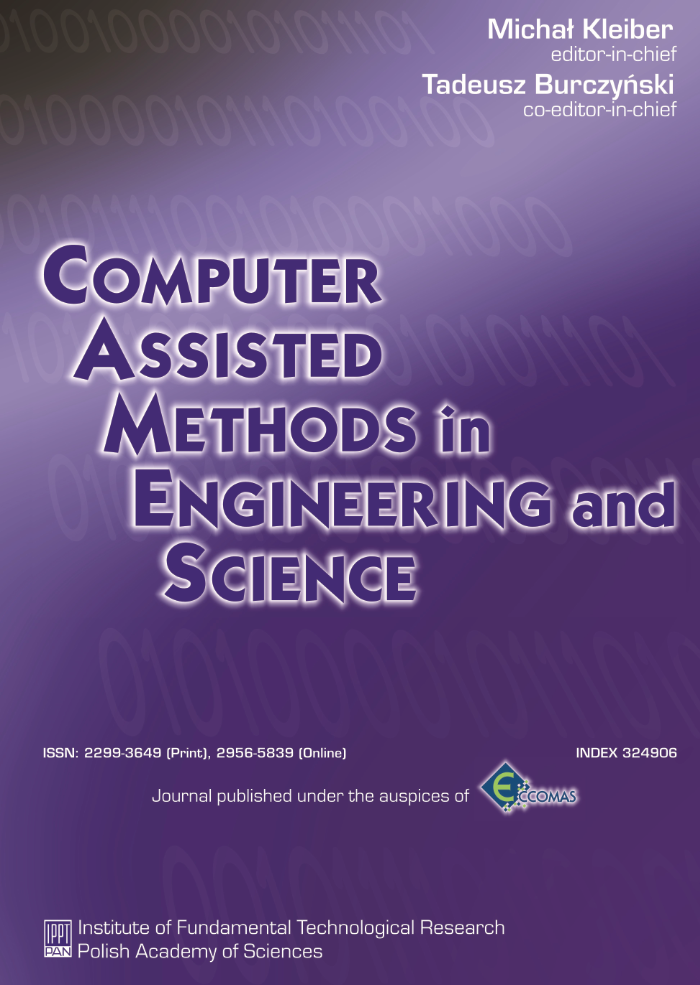Abstract
When solving complex boundary value problems, the primary advantage of the Trefftz method is that Trefftz functions a priori satisfy the governing differential equations. For the treatment of three-dimensional isotropic elasticity problems, it is proposed that the bi-harmonic solutions in Boussinesq's method can be expressed as half-space Fourier series to bypass the difficulties of integration. A total of 29 Trefftz terms for each component of the displacement vectors are derived from the general solutions of the elasticity system. Numerical assessments on the proposed formulations are performed through two examples (a cubic and a cylindrical body). Results are compared with those from the method of fundamental solutions (MFS) and the commercial finite element method (FEM) software STRAND 7, suggesting that Trefftz functions can provide pseudo-stability, faster convergence and reduced error margins.
References
[2] Y.K. Cheung, W.G. Jin, O.C. Zienkiewicz. Direct solution procedure for solution of harmonic problems using complete, non-singular, Trefftz functions. Comm. Appl. Num. Meth., 5: 159-169, 1989.
[3] B.M. Filonenko. Theory of Elasticity. Scientific Publishers, The Netherlands, 1959.
[4] Q. Guan, S.R. He. Three-dimensional analysis of piezoelectric/piezomagnetic elastic media. Compos. Struct., 72: 419-428, 2006.
[5] I. Herrera. Boundary methods: A criterion for completeness. Proc. Nat. Acad. Sci., 4395- 4398, 1980.
[6] W.G. Jin, Y.K. Cheung. Trefftz direct method. Adv. Engrg. Software, 24: 65- 69, 1995.
[7] E. Kita, N. Kamiya. Trefftz method: an overview. Adv. Engrg. Software, 24: 3- 12, 1995.
[8] D.L. Logan. Finite Element Method. Thomson Learning, USA, 2002.
[9] E.A.W. Maunder. Trefftz in Translation. 3rd International Trefftz Conference, pp. 1- 24, 2002 .
[10] R. Piltner. The use of complex valued functions for the solution of three-dimensional elasticity problems. J. Elasticity, 18: 191- 225, 1987.
[11] Q.H. Qin. The Trefftz Finite and Boundary Element Method. WIT Press, UK, 2000.
[12] S.P. Timoshenko. History of Strength of Materials. McGraw-Hill, USA, 1953.
[13] E. Trefftz. A counterpart to Ritz's method. In: Proceedings of the 2nd International Congress of Applied Mechanics: 131-137, 1926.
[14] Z.K. Wang, S.H. Huang. The general solution of three dimensional problems in piezoelectric media. Int. J. Solids Struct., 32: 105- 115, 1995.
[15] A.P. Zieliński. On trial functions applied in the generalized Trefftz method. Adv. Engrg. Software, 24: 147- 155, 1995.



